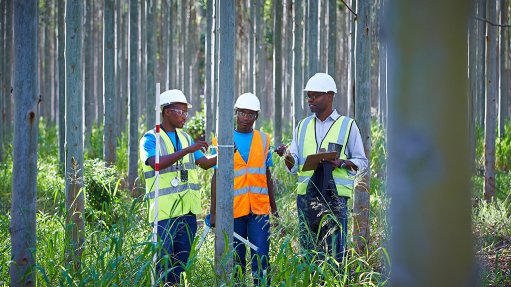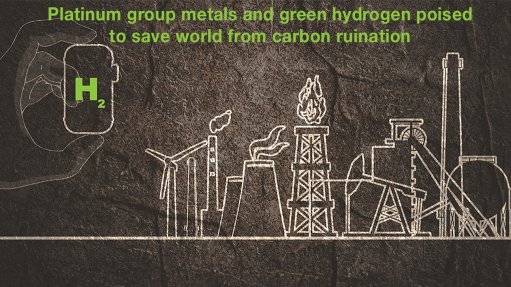Telcos spend billions on batteries, generators to ensure customers remain connected during loadshedding
South African telecommunications operators spent billions of rands to keep communications infrastructure operational during bouts of loadshedding in the 12 months to September 30, 2023.
The Independent Communications Authority of South Africa’s (Icasa’s) latest State of Information Communication Technology (ICT) sector report shows that R2.59-billion was spent on batteries, while R930.2-million was spent on generators.
During the period under review, the operators procured 3 268 generators and 150 415 batteries, compared with the 16 660 generators and 98 733 batteries acquired in 2022, when, overall, service providers spent R2.65-billion on batteries and R873.57-million on generators.
“Licensees invested in batteries, generators and other backup power systems to ensure uninterrupted service delivery during loadshedding events,” the report explained.
Overall, Icasa highlights the telecommunications sector’s notable decrease in total investment, which contracted 7.94% to R36.64-billion in 2023, from R39.80-billion in the previous year, reflecting a significant downturn in financial commitment.
In 2022, the sector’s investments had surged 17.16% from R33.97-billion in 2021, possibly owing to the spectrum auction.
“Therefore, the decrease in 2023 might not be significant, compared with 2022,” Icasa adds.
Unpacking the investment trends further, the State of ICT sector report outlined that investment in infrastructure increased from R6.99-billion in 2022 to R7.59-billion in 2023.
Maintenance investments declined to R2.72-billion in the 12 months to September 30, 2023, compared with R2.32-billion in the comparative period, while expansion investment plunged significantly from R7.68-billion in 2022 to R1.65-billion in 2023.
Yearly investment in mobile communication services declined from R15.52-billion to R14.42-billion, while annual investment in fixed- (wired-) broadband services decreased from R4.95-billion in 2022 to R3.88-billion in the 12 months under review.
Other annual investment in telecommunication services increased from R2.31-billion to R6.38-billion during the same period.
Over a five-year period, the total telecommunications investment decreased by 1.49%.
Meanwhile, the telecommunications sector’s total revenue increased by 0.07% from R208.15-billion in 2022 to R208.29-billion in the 12 months to September 30, 2023, mostly owing to the significant 45.85% increase in total fixed-Internet and data revenue to R30.51-billion.
However, total fixed-line revenue and total mobile services revenue decreased 14.57% and 1.54% respectively in 2023.
Total mobile services revenue decreased from R122-billion in 2022 to R120.11-billion in 2023, while fixed-line revenue decreased from R5.57-billion in 2022 to R4.76-billion in 2023.
“These figures underscore dynamic shifts in revenue streams within the telecommunications industry, with divergent trends observed across different service categories,” Icasa explained in the report.
Within the mobile services revenue category, revenue from mobile data services increased from R62.23-billion in 2022 to R63.20-billion in 2023, while revenue from voice services declined from R33.36-billion in 2022 to R31.03-billion during the year to September 30, 2023.
Of the total fixed-Internet and data revenue during the year, there was a substantial increase in revenue from fixed- (wired-) broadband services from R12.78-billion in 2022 to R15.43-billion in 2023, as well as in fixed-Internet revenue from R4-billion in 2022 to R7.28-billion in 2023.
Other wireless-broadband services revenue increased from R1.35-billion to R4.76-billion during the same period.
Overall revenue in the telecommunications sector over the past five years increased by 1.76% from the R194.28-billion recorded in 2019.
In the past five years, revenue from mobile services increased by 5.2% and revenue from fixed-Internet and data increased by 3.3%. However, revenue from fixed-line services decreased 18.24%.
“Examining the contributing factors further, while the dip in fixed-line and mobile services revenue underscored challenges within traditional telecommunication services, the uptick in fixed-Internet and data revenue suggests a shift towards digital connectivity and data-driven services.”
The report also records the subscription and coverage growth over the past year.
While national third-generation technology population coverage contracted from 100% to 99.4% in 2023, fourth-generation/long-term evolution coverage increased slightly from 98% to 98.8% and fifth-generation coverage surged from 20% in 2022 to 38.42%.
During the 12 months to September 30, 2023, mobile cellular subscriptions increased by 1.78% to 108.7-million, while mobile cellular subscriptions that have been active for more than 90 days slightly increased by 0.10% to 90.55-million in 2023.
Mobile cellular data users increased by 9.89%, to 41.68 million in 2023.
Smartphone subscriptions increased by 1.48% to 74.98-million for the same period, with Icasa explaining that the increase means that many people in South Africa have access to the Internet, GPS technology, ecommerce and mobile banking, besides others.
In 2023, there was a 7.17% increase in total fixed-broadband subscriptions to 1.77-million supported by the rise in fibre-to-the-home/building Internet subscriptions, which increased by 9.01% to 1.49-million, and other fixed- (wired-) broadband, which increased 19.51% to 27 140 during the same period.
Digital subscriber line, or more commonly, DSL, Internet subscriptions continued to decline, experiencing a decrease of 3.41% in 2023 to 255 223.
The ninth yearly State of the ICT sector report of South Africa for the period from October 1, 2022, to September 30, 2023, was compiled from information received from 98 Electronic Communications Service and Electronic Communications Network Service licensees, with all the big operators having responded to the questionnaire.
Comments
Announcements
What's On
Subscribe to improve your user experience...
Option 1 (equivalent of R125 a month):
Receive a weekly copy of Creamer Media's Engineering News & Mining Weekly magazine
(print copy for those in South Africa and e-magazine for those outside of South Africa)
Receive daily email newsletters
Access to full search results
Access archive of magazine back copies
Access to Projects in Progress
Access to ONE Research Report of your choice in PDF format
Option 2 (equivalent of R375 a month):
All benefits from Option 1
PLUS
Access to Creamer Media's Research Channel Africa for ALL Research Reports, in PDF format, on various industrial and mining sectors
including Electricity; Water; Energy Transition; Hydrogen; Roads, Rail and Ports; Coal; Gold; Platinum; Battery Metals; etc.
Already a subscriber?
Forgotten your password?
Receive weekly copy of Creamer Media's Engineering News & Mining Weekly magazine (print copy for those in South Africa and e-magazine for those outside of South Africa)
➕
Recieve daily email newsletters
➕
Access to full search results
➕
Access archive of magazine back copies
➕
Access to Projects in Progress
➕
Access to ONE Research Report of your choice in PDF format
RESEARCH CHANNEL AFRICA
R4500 (equivalent of R375 a month)
SUBSCRIBEAll benefits from Option 1
➕
Access to Creamer Media's Research Channel Africa for ALL Research Reports on various industrial and mining sectors, in PDF format, including on:
Electricity
➕
Water
➕
Energy Transition
➕
Hydrogen
➕
Roads, Rail and Ports
➕
Coal
➕
Gold
➕
Platinum
➕
Battery Metals
➕
etc.
Receive all benefits from Option 1 or Option 2 delivered to numerous people at your company
➕
Multiple User names and Passwords for simultaneous log-ins
➕
Intranet integration access to all in your organisation


















